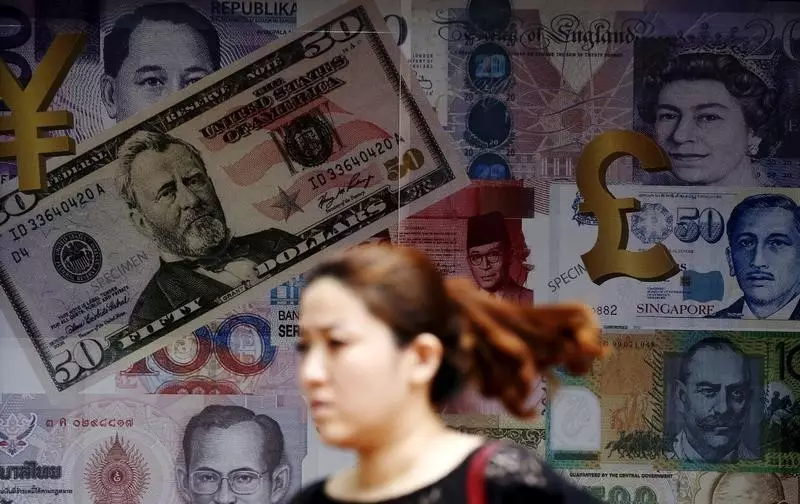The British pound has been experiencing a notable decline in its value, particularly evident this week as it diverges from the expected behavior of UK bond yields. This disconnection raises questions about the underlying economic factors driving the pound’s deterioration. Traditionally, one would expect a strengthening currency to correlate with increasing yields; however, the current situation suggests that other dynamics are at play.
Deutsche Bank has identified the pound as the worst-performing major currency since the beginning of the fiscal year, prompting a recommendation to adopt a bearish position on the currency. Their analysis paints a dire picture, indicating that the UK’s current account deficit shows little sign of improvement. This stagnation contributes to a growing consensus among investors that the pound’s fortunes may dwindle further, especially in light of its reliance on carry trades that are now threatened by various economic pressures.
The ongoing deterioration of the pound can be attributed to a combination of macroeconomic indicators and market psychology. Not only has the pound fallen over 1% in trade-weighted terms since the onset of the year, but it has also faced increasing challenges against a robust US dollar. This performance is disconcerting, particularly as many other currencies struggle against the dollar’s strength. Such trends create a feedback loop, where the pound’s ongoing weakness may discourage investments, further exacerbating its decline.
The current climate calls into question the future demand for the pound, especially considering that Deutsche Bank has shifted its strategy from previously holding long positions to actively recommending sales. This pivot suggests that institutional investors are losing faith in the pound’s ability to recover in the immediate future. Furthermore, the market’s reaction to the UK budget announcement in November serves as a case study, illuminating the currency’s vulnerability to political and economic announcements.
As the UK grapples with the implications of a declining pound, policymakers may face increased pressure to devise strategies aimed at bolstering the currency. The reliance on foreign capital inflows to stabilize the pound adds another layer of complexity, particularly as these inflows become riskier. If the current trends persist, we could see heightened volatility in the currency markets, which may force the Bank of England to reconsider its monetary policy stance.
The British pound is at a critical juncture marked by uncertainty and potential further declines. With Deutsche Bank’s recent recommendation to short the currency and the mounting evidence of an underperforming economy, it is clear that traders and economists alike should tread cautiously. As the dynamics within the global currency market evolve, the implications for the UK’s economic standing will be profound, calling for vigilant observation and strategic adaptability from all stakeholders in the financial ecosystem.

